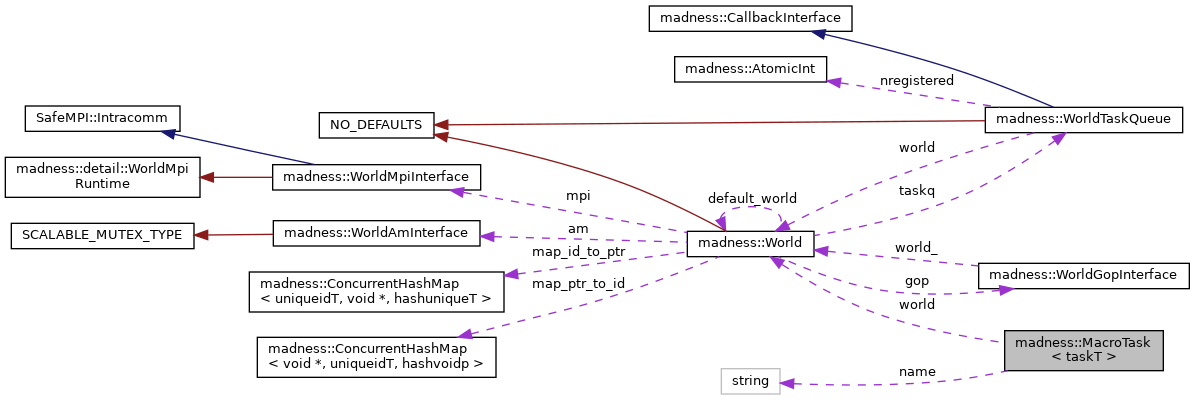#include <macrotaskq.h>
|
| | MacroTask (World &world, taskT &task) |
| | constructor takes the task, but no arguments to the task
|
| |
| | MacroTask (World &world, taskT &task, const MacroTaskQFactory factory) |
| | constructor takes task and a taskq factory for customization, immediate execution
|
| |
| | MacroTask (World &world, taskT &task, std::shared_ptr< MacroTaskQ > taskq_ptr) |
| | constructor takes the task, and a taskq, execution is not immediate
|
| |
| std::shared_ptr< MacroTaskQ > | get_taskq () const |
| |
| template<typename ... Ts> |
| resultT | operator() (const Ts &... args) |
| | this mimicks the original call to the task functor, called from the universe
|
| |
| MacroTask & | set_debug (const bool value) |
| |
◆ argtupleT
template<typename taskT >
◆ partitionT
template<typename taskT >
◆ recordlistT
template<typename taskT >
◆ resultT
template<typename taskT >
◆ MacroTask() [1/3]
template<typename taskT >
◆ MacroTask() [2/3]
template<typename taskT >
◆ MacroTask() [3/3]
template<typename taskT >
◆ get_taskq()
template<typename taskT >
◆ operator()()
template<typename taskT >
template<typename ... Ts>
this mimicks the original call to the task functor, called from the universe
store all input to the cloud, create output Function<T,NDIM> in the universe, create the batched task and shove it into the taskq. Possibly execute the taskq.
References madness::MacroTask< taskT >::debug, madness::MacroTask< taskT >::immediate_execution, madness::MacroTask< taskT >::prepare_output_records(), madness::print(), madness::World::rank(), madness::World::size(), madness::MacroTask< taskT >::task, madness::MacroTask< taskT >::taskq_ptr, and madness::MacroTask< taskT >::world.
◆ prepare_output_records()
template<typename taskT >
◆ set_debug()
template<typename taskT >
◆ debug
template<typename taskT >
◆ immediate_execution
template<typename taskT >
◆ task
template<typename taskT >
◆ taskq_ptr
template<typename taskT >
◆ world
template<typename taskT >
The documentation for this class was generated from the following file:
